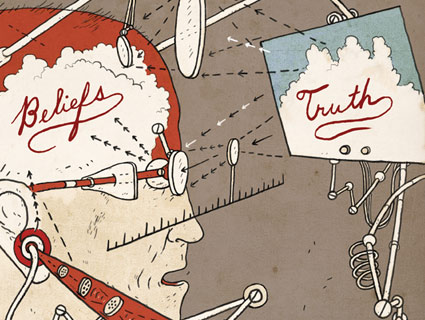If you’ve ever read anything on the internet, chances are you’ve encountered a troll. No, not the kind that live under bridges, or the ones with a shock of neon hair. We’re talking about those annoying commenters who get their kicks by riling people up as much as possible. But have you ever wondered who these people really are? Well, we found out.
Internet researchers at George Mason University recently found that when it comes to online commenting, throwing bombs gets more attention than being nice, and makes readers double down on their preexisting beliefs. What’s more, trolls create a false sense that a topic is more controversial than it really is. Witness the overwhelming consensus on climate change amongst scientists—97 percent agreement that global warming is real, and caused by humans. But that doesn’t settle the question for Twitter addict and Climate Desk perennial thorn in the side Hoyt Connell:
“If you allow somebody to make a comment and there’s no response, then they’re controlling the definition of the statement,” Hoyt says. “Then it can become a truth.”
We first encountered Hoyt, or as we know him, @hoytc55, several months ago on our Twitter page, taking us to task for our climate coverage. And the screed hasn’t stopped since: In April alone, Hoyt mentioned us on Twitter some 126 times, almost as much as our top nine other followers combined. So we did the only thing we knew how to do: track him down, meet him face to face…and ask a few questions of our own. So we did, in Episode One: Trollus Maximus (above).
Episode Two: The Troll Slayer: Some online commenters are silent, watching from the wings, what internet researchers call “lurkers.” Not Rosi Reed, a 34-year-old nuclear physicist at the Large Hadron Collider and long-time internet truth crusader, who goes by the nom de guerre PhysicsGirl.
Finally, we launched an experiment: Episode Three: The Showdown. What if the trolls and the troll slayers met face to face and talked it out, analog-style (or as close as we can get with Google Hangout)? For all their differences, Hoyt and Rosi have one thing in common: They aren’t cowards. They agreed to square off in a debate about online commenting, climate change, and what defines truth in the digital age.

















